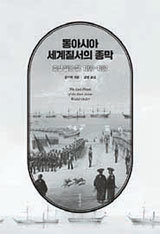Hidden message in China’s expansionism that opens up Joseon’s ports
Hidden message in China’s expansionism that opens up Joseon’s ports
Posted February. 12, 2022 07:18,
Updated February. 12, 2022 07:18

Right after Joseon soldiers invaded into the palace in June 1882, Japan and the Qing dynasty sent their troops to the Korean Peninsula. While Japan dispatched warships and 300 soldiers to Jemulpo, 3,000 Qing troops landed on Namyang Bay. After the two external forces started negotiations with the peninsula being a tinderbox on the verge of war, Qing troops hijacked and took Heungseon Daewongun, who was behind the coup, to Tianjin.
The author, a professor of East Asian modern history at University of California, Davis, traces how the relations of Korea, China and Japan were incorporated into the modern international order around the late 19th century. He describes the Imo Mutiny as a historical incident that dismantled the geopolitical system to pay tribute to the Qing dynasty. Even after suppressing the riots, it kept the troops stationed on the peninsula while meddling deeply in internal affairs of the Joseon dynasty. The way it behaved ran against the conventional tribute system where a colonial master is entitled to rights only formally without interfering with a tributary state’s domestic politics.
China’s leaning toward expansionism was directly driven by the invasion of Japan and Russia into East Asia. The Korean Peninsula was considered by the Qing dynasty a core buffer state, not far from North China and the capital city of Beijing, from a perspective of national security.
What’s interesting is that the Qing dynasty demanded a treaty to open Joseon‘s ports overseas after it was virtually forced to sign a humiliating diplomatic treaty with Western powers after the Opium Wars. Involving Western powers in the landscape, it intended to keep Japan and Russia in check. In other words, the purpose of its diplomatic tactic was to take advantage of opponents to defeat another group of enemies. This turned out to be Joseon’s first step taken to be part of an international order of modern times under which sovereign states forge a diplomatic relationship in an equal position. As the title of this book implies, it was the last phase of the East Asian order that had centered around a colonial master.
With anti-Chinese sentiment prevailing following the judging controversy in the Beijing Winter Olympics, how we view China is becoming a hot potato. The expansionism-driven Qing dynasty in the 19th century reshaped the East Asian regional order surrounding the Korean Peninsula before Mao Zedong’s decision to join war turned out to be a watershed of the Korean War. This has implications for us today.
Sang-Un Kim sukim@donga.com



![[속보]박근혜 손잡고 울먹인 장동혁 “더 큰 싸움 위해 단식 중단”](https://dimg.donga.com/c/138/175/90/1/wps/NEWS/IMAGE/2026/01/22/133209040.3.jpg)



